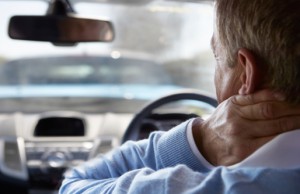 When you’re involved in an auto accident, there is an overwhelming sense of confusion. What just happened? Is my car okay? Am I okay? Adrenaline is coursing through your veins and your heart rate is elevated. You may feel rattled, but physically fine. Still, it’s important to seek prompt medical attention.
When you’re involved in an auto accident, there is an overwhelming sense of confusion. What just happened? Is my car okay? Am I okay? Adrenaline is coursing through your veins and your heart rate is elevated. You may feel rattled, but physically fine. Still, it’s important to seek prompt medical attention.
You may not recognize your injury, as adrenaline is nature’s way of guarding you from pain. You could also underestimate the extent of an injury. In addition to the physical reasons, waiting to get medical attention after an accident could harm your ability to receive compensation for your injuries. In all scenarios, it’s better to be safe than sorry.
Your body on adrenaline
Adrenaline is a hormone secreted in the brain. It’s an evolutionary leftover that helped our ancestors develop a keen “fight or flight” response. Stress and fear trigger the secretion of this powerful chemical, which has numerous effects on your body.
After a car accident, it’s the adrenaline that causes an increase in heart rate, blood pressure, and even metabolism. Adrenaline is preparing your body for strenuous activity and it can even improve muscle strength in these moments of rush. Also known as epinephrine, it’s been developed into a medicine because of the dramatic effects it has on the heart and lungs—opening up the airways to increase oxygen consumption.
In addition to all of these effects, adrenaline helps dull pain. It masks injuries so you can escape from a potentially dangerous situation. When paired with the fact that it can cause confusion and racing thoughts, adrenaline can trick you into thinking you don’t need medical attention at all.
Not all injuries are immediately apparent
Many people go hours, days, or even weeks without feeling the effects of a car accident injury.
Soft tissue injuries, like sprains, whiplash, and torn ligaments, may show absolutely no visible signs. A little swelling could mask a serious injury that will ultimately require months of rehabilitation and even surgery.
Seeking immediate medical attention following an accident ensures you aren’t missing something—out of a lack of knowledge, lack of pain, or sheer stress.
How delaying medical treatment can harm you
Waiting to see a doctor could aggravate an otherwise minor injury. But it could also seriously hinder your ability to get compensation from the at-fault driver.
When it comes time to pay up after an accident, insurance companies will try to pay the least amount possible. If another driver caused your crash, adjusters for their insurance company will look at every possible excuse to not compensate you, even if you have thousands in medical bills and property damage.
Delayed medical treatment is a frequently cited reason for personal injury claims being denied. Right or wrong, these companies see a gap in time between your accident and your first doctor’s visit as a sign that you weren’t seriously hurt. Seeing someone seek medical attention soon after the crash can silence those doubts.
Further, if your doctor recommends x-rays, follow-up appointments, days off work, or referrals—even if you feel okay—it’s usually a good idea to trust his or her expertise. Remember, your body can easily trick you in the hours following an accident.
